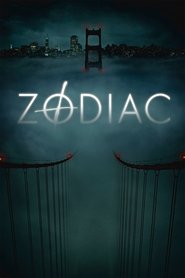Had the luxury of watching this with a first-timer. An amazing film. It takes real skill to lay out a movie like this, told over decades, and retain a sense of clarity and coherence in your editing.
It’s also a film all about perspective. Yours, as an uncomfortable voyeur — I’ve never seen this film with anybody who doesn’t remark on its brutal violence. It’s a film with a low body count, though — certainly less violent than a lot of action films. But it feels more violent because the murders (attempted and completed) take place from the perspectives of each victim, told with up-close shots Fincher rarely uses otherwise.
Outside of those brief moments of brutality, the first act is the perspective of the Zodiac killer’s letters to the newsroom and the crime scenes — here is the evidence, laid plainly. We watch it get rolled into offices. We watch others open it. We see the faces of people who read it, and are read it — almost like we see people from the perspective of the evidence. Shot A is the evidence from the perspective of the reader. Shot B is the reader, holding the evidence from the perspective of another person in the room. Shot C is that person, staring at the evidence. The evidence controls the framing and perspective of any scene it’s in. The evidence basically taunts us: these people think this is an unsolvable case.
The second act is almost entirely from Toschi’s perspective. How does the cop put these pieces together? Can the cop even get all these pieces of evidence? What story does the evidence tell? How is that story assembled? Who’s telling the story? Can we get their prints? Can we get their handwriting? Why do we feel like we’re now only seeing the evidence from a distance? But eventually: in no uncertain terms, we have our guy. Leigh. And when we see the interview with Leigh, each cop gets a full-on closeup as they examine Leigh’s stature. Focus on that man until the ultimate rejection: he’s not it. Maybe Dirty Harry will get him. Just like Toschi, now we hate that movie.
The third act pivots to Graysmith. It’s from his perspective now. The camera is practically attached to his shoulder. It’s the same story as the second act, but this time, it’s wish fulfillment. We are up close and personal with the evidence and the files. Graysmith rubs the bullets from the murder weapon, and surrounds himself with case files in his home. We are finally immersed in the evidence. We have to know who it is. It’s the only way to get closure. We will pursue every clue with the dedication and attention to detail of a cartoonist turned weeknight detective, like Redditors pursuing a rabbit trail of leads. There are some false trails — maybe — but afterwards, we know for a certainty: we’re with Graysmith, feeling what he feels, alone in his house and in our truth, and rapping our knuckles on Toschi’s bedroom window: “It’s Leigh!”
Roll credits. Lights up.
But wait. At this point, uncertainty grows. We realize something is off; we are uncomfortably aware of the trick. First, the evidence told us a story from its perspective. Then we learned from Toschi’s perspective. What does Graysmith’s perspective add for us? It’s all circumstantial, based on addresses and stories from house parties and movie posters and birthdays. Thanks to the magic of cinematic perspective, we’re certain Graysmith had to be right, but there’s this small, nagging voice in the back of our heads, echoing a line from the film: “we have to tread carefully here. We’re talking about an entire man’s life ruined by circumstantial evidence.”
At the end of the film, when we get to inspect Leigh again, to finally see him, we don’t get a closeup like we did with the detectives. We don’t get a closeup of Leigh’s physical evidence — his shoes, his watch. It’s a medium shot. Shot A is Leigh. Reverse shot is Graysmith. There is no shot of the evidence‘s perspective.
Later, when you’re lying awake at night, staring at the ceiling, you remember this is still an unsolved case. And you can’t sleep, because you know: you got caught up in it, like Graysmith. You need to know who did it. You have to see him, look him in the eye, and know.
Thanks to David Fincher, you thought that maybe you did. But then again…
An immaculate exercise in literally any cinematic form or you could describe. Masterfully written, acted, shot, and edited. Desperate for this to get a 4K release; it really needs some attention.
Between this and The Social Network, Fincher was on a real tear in this time period.
